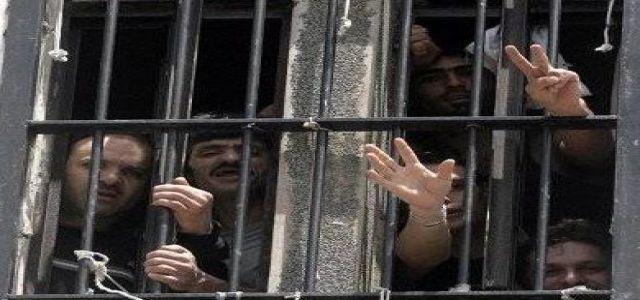- Palestine
- April 27, 2010
- 3 minutes read
Prisoners maintain protest steps, go on hunger strike

GAZA, The Palestinian prisoners held in Israeli occupation jails have gone on hunger strike on Tuesday as a fresh protest step against the Israeli atrocities committed against them and their visiting relatives.
The higher national committee in support of prisoners in Gaza said in a statement on Monday that the prisoners are adamant on going ahead with their protest steps despite threats from the Israeli prisons authority (IPA).
The committee’ spokesman Riyadh Al-Ashqar said that the IPA tried to foil their protest using various quelling means including storming their cells and moving them from one prison to another.
He mentioned examples of such quelling measures including storming prison rooms, assaulting prisoners, banning sports activity, depriving them of daily strolls outside their cells, barring messages to relatives, and blocking their share of the canteen among others.
Ashqar noted that all those quelling methods did not succeed in convincing the prisoners to stop their struggle, which they started on 1st of April to regain their just, humanitarian rights.
He said that the unity of prisoners and their leadership boosted their solidarity, calling on all Palestinian institutions to support the prisoners’ strikes and just demands.
Meanwhile, members of the relatives of Jerusalemite prisoners met in occupied Jerusalem on Sunday with a delegation of the French society for solidarity with the Palestinian people including the headperson of the society.
One of the members, of Arab origin, presented a detailed explanation of the society’s work, noting that it groups 4,000 members and has branches in various French cities.
The chairman of the relatives committee spoke about the suffering of Palestinian prisoners in general and those of the Jerusalemites and 1948 occupied Palestine in particular.
An ex-prisoner spoke of his experience in Israeli jails and the deprivation of simplest rights stipulated in international laws topped by the fourth Geneva convention other than the medical neglect and malnutrition.



